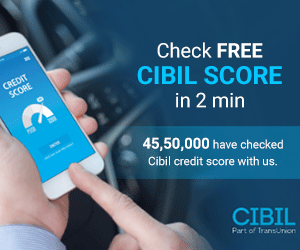Personal loans or credit cards. Which is a better option??
The decision of whether to apply for a Personal loan or a credit card depends on number of factors.
Making Your Decision
First and foremost, do the math and ask yourself these questions in order to make a right decision:
- The length of time you’ll be paying off the loan?
- Whether or not you can consistently handle the monthly payment, and if there’s a prepayment penalty. Would you be better off with the enforced discipline of a fixed loan payment over a longer period of time?
- Do you have the means and personal discipline to pay off your credit cards sooner?
These questions have ultimate objective to pay down the debt as quickly and cost effectively as possible without adversely affecting your overall financial well-being.
Let’s throw light on the basics of both:
Personal Loan Basics: Whenever you think of loan, interest rate is the key consideration. If your interest rate on personal loan is lower than that on your credit card, that’s a plus. Often personal loan interest rates are lower than credit card rates, but the precise figure will be largely determined by your income, your credit score and your payment history. The higher your income and credit score, the lower the rate. Interest rates can also vary by bank and by state, so it’s worth your time to do a little research on the same.
A personal loan can be secured or unsecured:
– A secured loan is backed by some type of asset as collateral. If you default on the loan, the bank can take the asset.
– An unsecured loan has no collateral attached to it. If you default, the bank can take legal action against you to recoup the money.
Both types of personal loans have a fixed monthly payment schedule. However the interest rates on an unsecured loan is usually higher than on a secured loan.
Credit card basics: Before you apply for a credit card, make sure you understand these basic terms:
- Annual Fee: What you’ll be charged each year for using the card. Many cards have no annual fee, so shop around.
- Annual Percentage Rate (APR): The interest rate you’ll be charged if you don’t pay your balance in full each month. Credit cards often have different APRs for Purchases, Cash Advances, and Balance Transfers, so make sure a low APR in one category isn’t offset by high APRs in others.
- Introductory APR: A low rate that goes up after a certain time. If your card offers a “low introductory rate,” note how long you have until the rate rises, and what that rate will be.
- Balance Transfer Fee: Sometimes charged to transfer balances from one credit card to another.
- Cash Advance Fee: Cash Advances refer to getting cash from or taking out a loan on your line of credit. They can bail you out of emergencies, but can become expensive loans if you don’t pay them off quickly.
- Late Payment Fee: Charged if payment is received after the due date.
- Minimum Interest Charge: Imposed whenever you carry forward a balance.
Understand which is a better option: Personal loan or Credit Card
- Personal loans:
| PROS | CONS | SUITABLE FOR |
| Lower interest rates than credit cards. | Burden of carrying the debt for more than a year. | Large debt consolidations. |
| Cheaper in the long run as compared to credit cards. | No redraw options and early repayments. | Borrowing over a long period of time. |
| No additional spending as we do with use of credit cards. | It takes longer time to apply for a personal loan. | |
| Debt will eventually be repaid. | Personal loans do not offer travel benefits, rewards, discounts, insurance coverage etc. | |
| Fixed interest rate creates stability as the interest rate cannot fluctuate and your payments will be fixed. | Personal loans have an application and service fee. | |
| Fixed payments are easy to budget |
- Credit cards:
| PROS | CONS | SUITABLE FOR |
| It is a great option if you have a constant cash flow. | Higher interest rates than personal loans. | Small debt consolidations. |
| Credit cards can be used for immediate spending. | Debt can roll on as it only requires minimum repayment each statement period. | Short term debt. It allows you to vary the amount you repay each month providing you pay a set minimum amount and clear your borrowing whenever you can afford to. |
| Balance transfers. It means you can repay on your own terms free of charge over the short term. | Regular shopping and retail purchases to earn reward points. | |
| Interest free days. |
So, the answer to the question that which is a better option lies on the above factors you are looking for.




